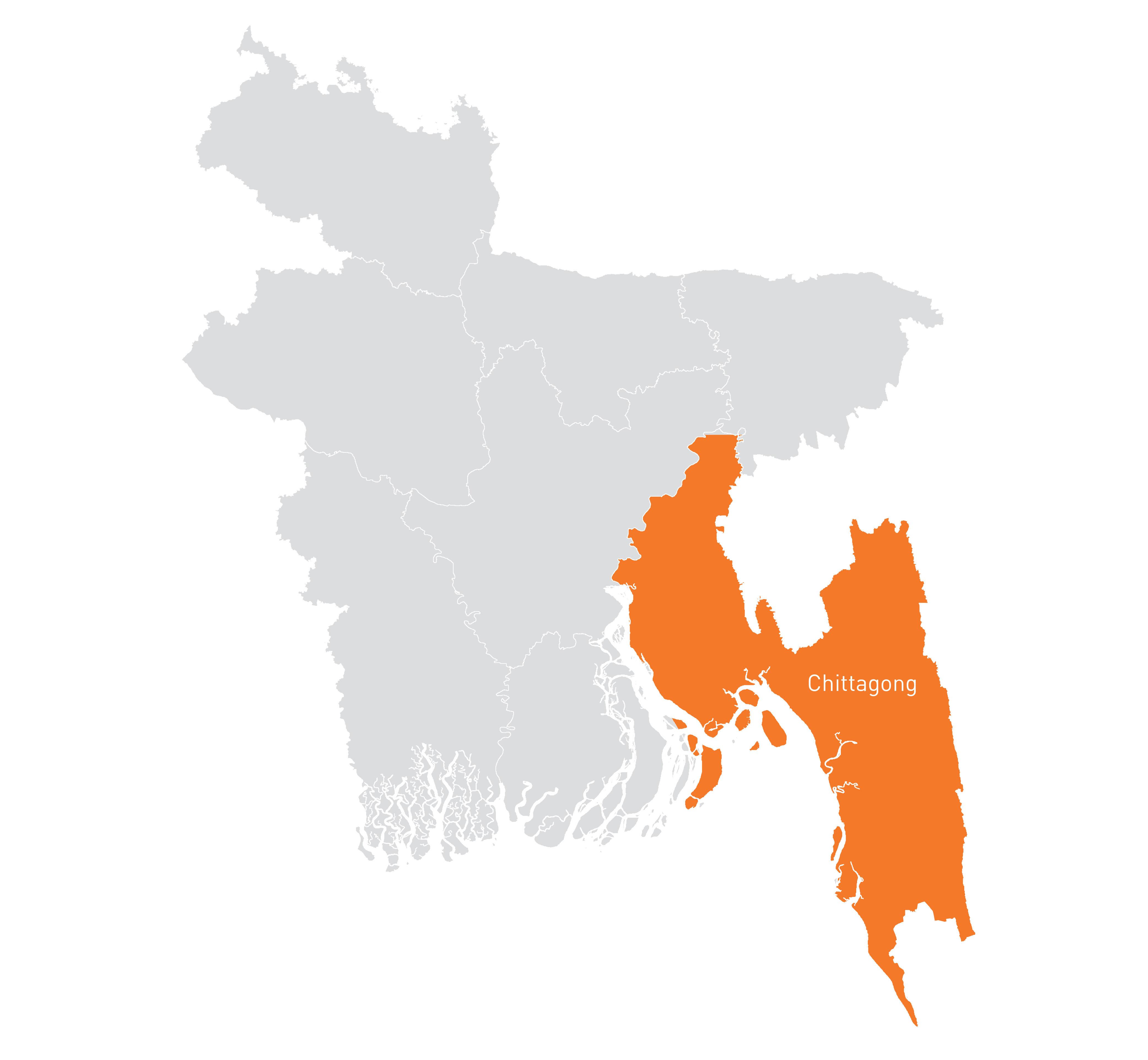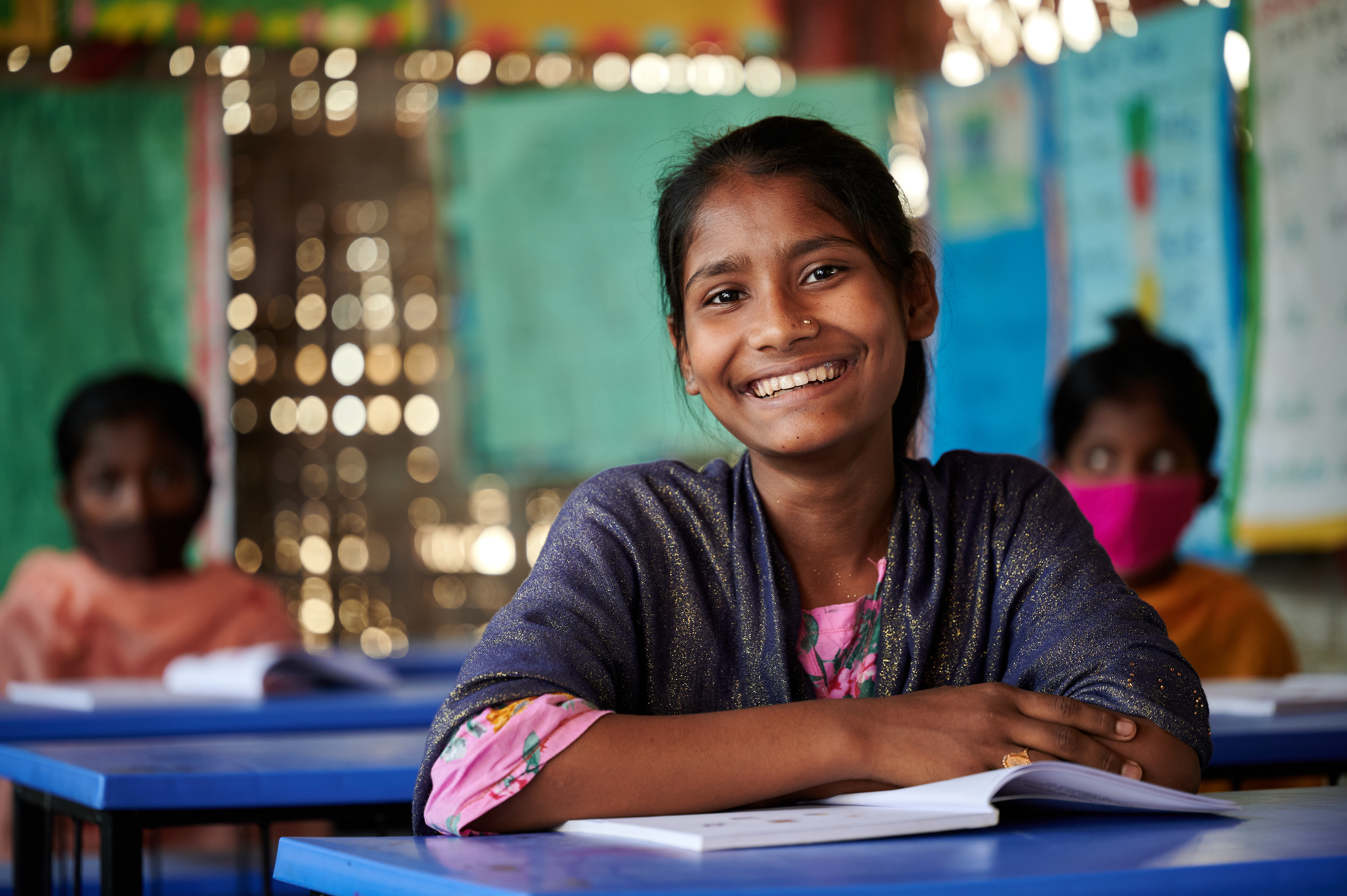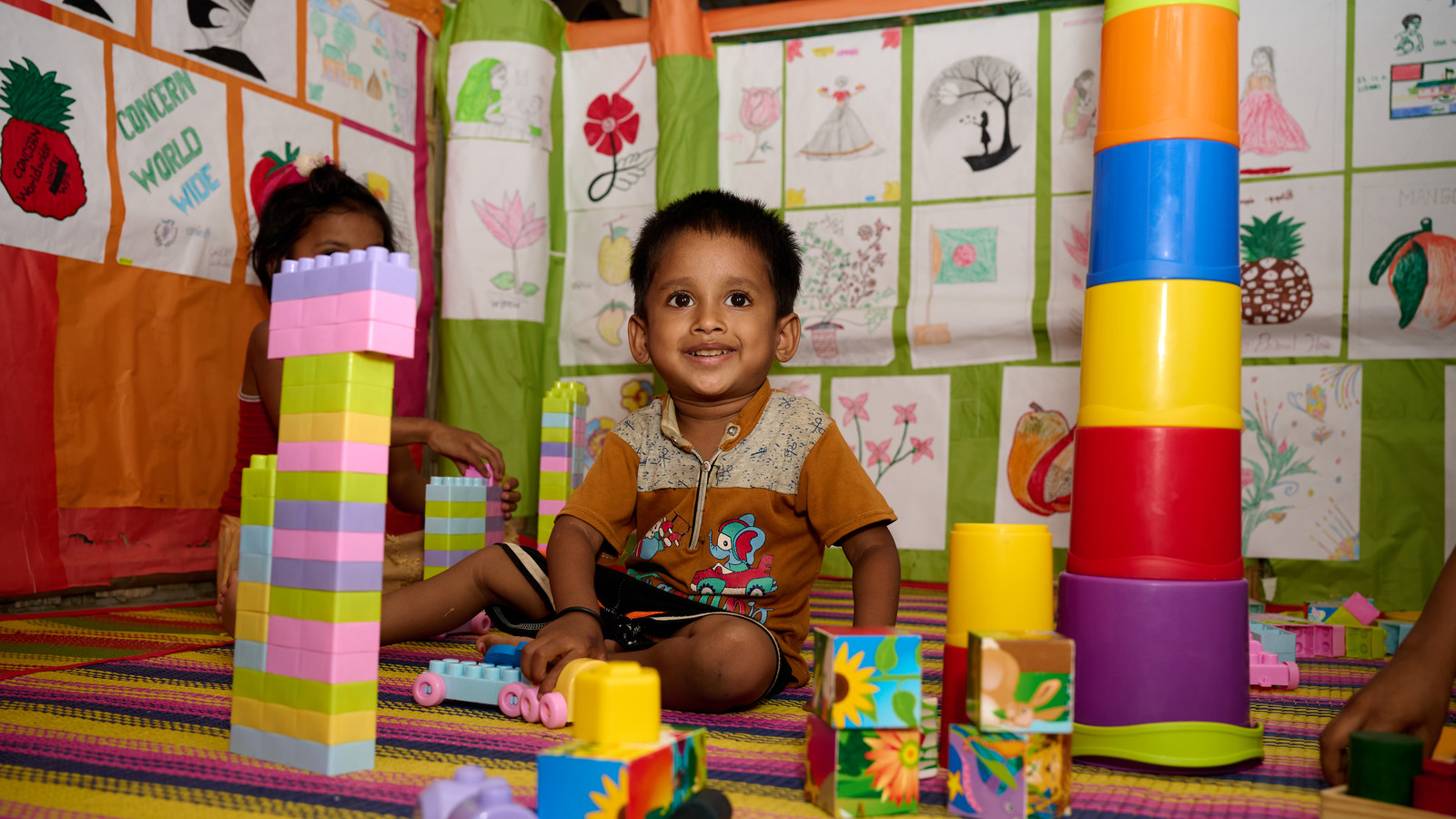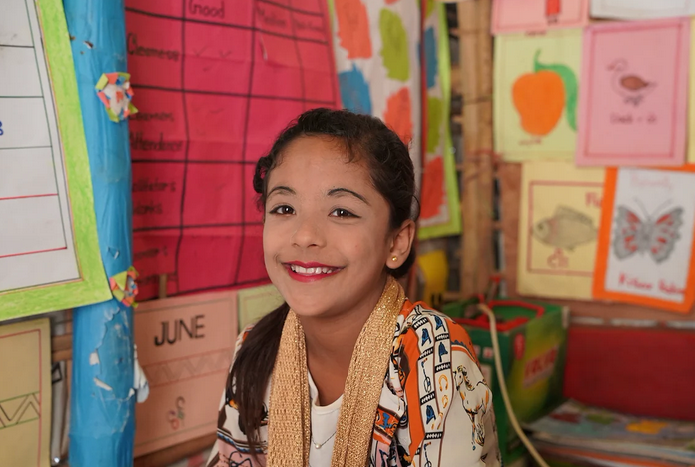ECW in Bangladesh
The district of Cox’s Bazar hosts the world’s largest refugee camp. Refugee children lack access to basic services such as education, healthcare, nutrition, and water and sanitation facilities. Since the early days of the massive influx of Rohingya refugees in 2017, Education Cannot Wait (ECW) has been supporting learning opportunities in Bangladesh. Education provides hope and protection to girls and boys impacted by the crisis. ECW works with United Nations agencies, civil society organizations, community leaders and other key stakeholders to support access to safe and holistic learning spaces, thus ensuring continuity of education for both refugee and host community children and adolescents.

Investments
Financial Information
National Counterparts
Education Cluster in Cox’s Bazar
Results
Additional Results
- Number of learning spaces with a functioning school-management committee and/or parent-teacher association: 2,850
- Number of children and adolescents who partake in at least 50% of the radio/TV/social media education programmes broadcast from home or in listening groups: 109,329
- Number of learning spaces with a dedicated counselor or social worker available on site: 1,953
- Number of teachers/administrators trained in subject knowledge, curriculum/planning or pedagogy topics: 5,341
COVID-19 Results
Programme Info

Schools in Cox’s Bazar have the country’s lowest retention and achievement rates, going back to before 2017. Children living in the camps face significant challenges, from shortages of learning spaces to poor quality of teaching. Many Rohingya children experienced stress and/or trauma caused by conflict and forced displacement, affecting their ability to concentrate on their studies. This is particularly the case for adolescent girls, who are often the most excluded from learning, as most girls are withdrawn from school by their families once they reach puberty.
Most children have never participated in formal schooling. Those not in school often find little to do in the camps, and the lack of opportunities to learn or engage in activities places them at high risk of exploitation, abuse, child marriage and early pregnancy. Furthermore, the COVID-19 pandemic compounded the risks for vulnerable children and adolescents, with the temporary closure of all learning facilities in the camps.
To address these challenges, ECW’s Multi-Year Resilience Programme in the country focuses on increasing access to education with safe and inclusive learning environments, improving quality of learning through teaching and incorporating community participation to increase the programme’s reach.
Programme Components
- Promoting equitable and inclusive education: Interventions specifically address barriers for women and girls. These include the provision of separate facilities for girls, boys, mothers and fathers; the creation of safe learning environments for girls; and a specific focus on recruiting female teachers. Interventions also focus on strengthening access and quality learning for children with disabilities.
- Recruiting and training teachers: The programme promotes a safe and child-friendly environment that incorporates a more equitable gender balance among educators. ECW partners recruit and support the retention of teachers. Teacher training sessions cover mental health and psychosocial support, disaster risk reduction and management, prevention of sexual exploitation and abuse, and child safeguarding policies.
- Supporting caregiver-led learning: ECW supports access to learning through home-based, caregiver-led education. Rohingya teachers visit parents and children, and share learning competency materials with instructions on how to ensure continued learning at home.
For more information on ECW's work in Bangladesh, please contact Country Lead Eddie Dutton (rdutton@unicef.org) and Programme Manager Fatou Niang (fniang@unicef.org).









